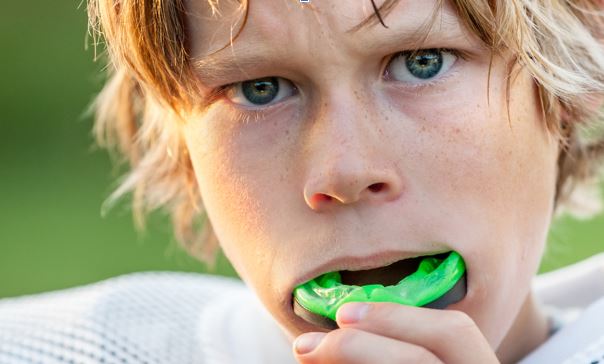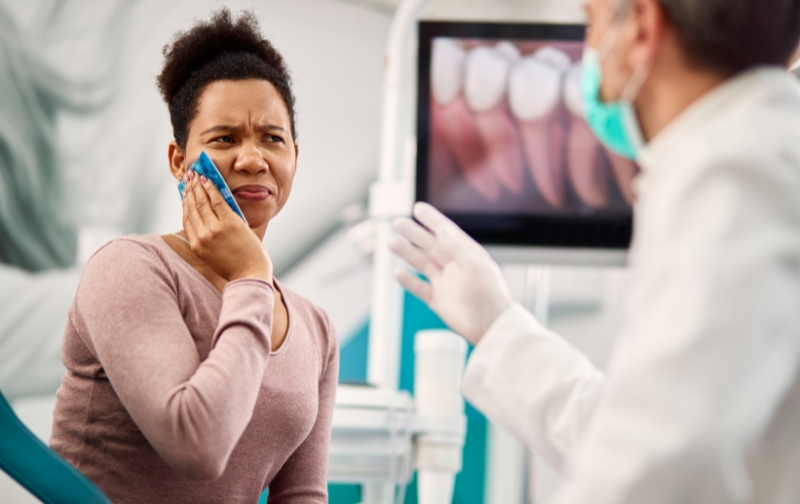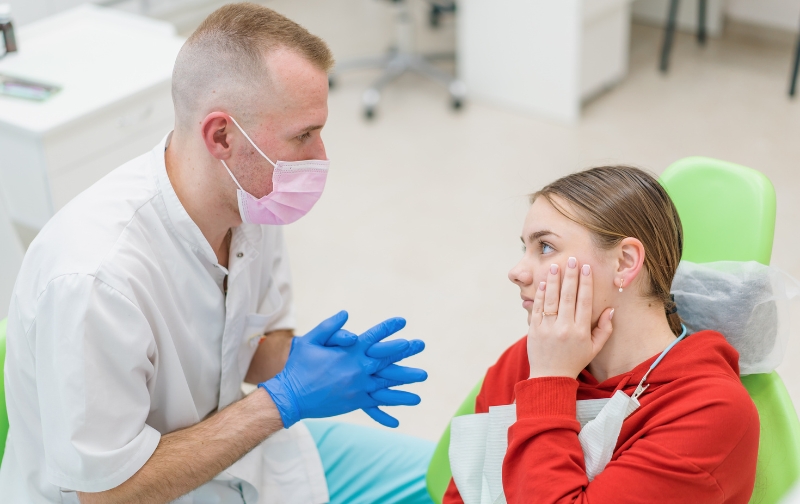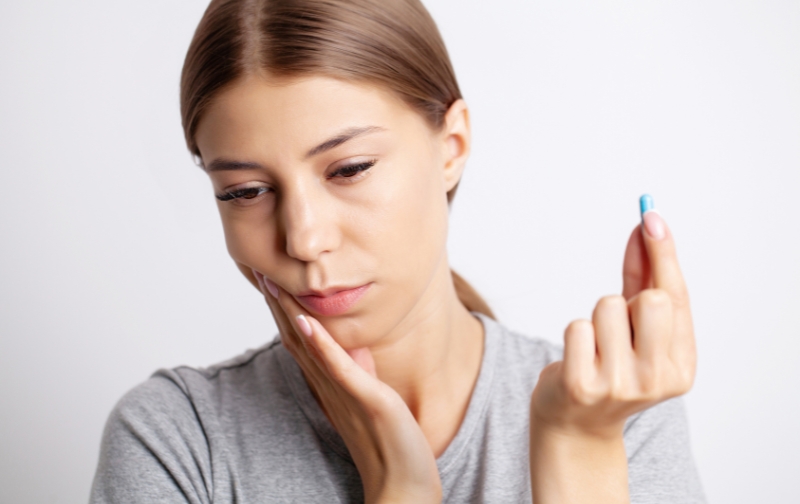117 Batesville Rd Suite 202, Simpsonville, SC 29681

When you’re out playing sports or enjoying outdoor activities, the last thing on your mind is often the potential for a dental injury. However, accidents happen—whether it’s a collision during a game or a fall while biking, dental emergencies are more common than you might think.
Injuries like broken teeth, knocked-out teeth, or cuts to your lips and gums can quickly turn a fun day into a painful one. The good news is that you can take simple steps to avoid these dental mishaps and protect your smile.
Preventing dental emergencies is easier than you think with the right knowledge and precautions. By wearing proper protective gear, practicing safe techniques, and being aware of the risks, you can drastically reduce the likelihood of a dental injury.
Not only will these measures keep you safe, but they’ll also ensure that you don’t end up dealing with expensive, time-consuming treatments. In this guide, we’ll explore effective strategies for keeping your teeth and gums intact, so you can focus on enjoying the game or adventure without worry.
Common Sports-Related Dental Injuries
Dental injuries can happen unexpectedly during sports and outdoor activities. Understanding these common injuries can help you prevent them and take proper action if they occur.
- Broken Teeth: Often caused by direct impacts, broken teeth are one of the most common dental injuries in sports. A chipped tooth may not be painful, but a severe fracture can lead to intense discomfort and require immediate treatment.
- Knocked-Out Teeth: This is one of the most severe dental injuries. If a tooth gets knocked out, it’s essential to act quickly to increase the chances of reimplantation.
- Lip and Gum Injuries: Sports that involve contact can lead to cuts on the lips and gums. These injuries can cause pain, swelling, and difficulty eating or speaking.
- High-Risk Sports: Sports like football, rugby, hockey, and basketball carry the highest risk for dental injuries due to the physical contact involved.
- Awareness of Risks: By knowing the risks associated with specific sports, athletes can take preventive measures, such as wearing mouthguards, to protect their teeth.
Dental emergencies during sports and outdoor activities can be reduced with the right precautions. Keep reading to discover how you can avoid these injuries and protect your smile.
The Role of Protective Gear in Preventing Dental Injuries
Protective gear plays a crucial role in reducing the risk of dental injuries, especially in high-contact sports. Among all forms of protection, mouthguards stand out as the most effective preventive tool.
- Mouthguards and Their Benefits: Mouthguards act as a barrier between your teeth and any impact force. They can cushion blows and prevent tooth damage, jaw injuries, and even concussions.
- Types of Mouthguards: There are different options available:
- Custom-made Mouthguards: These offer the best fit and comfort since they are custom-designed by your dentist. They provide superior protection, reducing the risk of dental injuries.
- Boil-and-Bite Mouthguards: These are more affordable and can be customized at home by boiling and shaping the material around your teeth. While not as comfortable as custom mouthguards, they still offer some protection.
- For High-Risk Sports: If you’re playing contact sports like football, hockey, or boxing, a mouthguard is essential. Even in non-contact sports like gymnastics or skateboarding, mouthguards can protect your teeth from accidents.
- Mouthguard Maintenance: Keep your mouthguard clean and ensure it fits properly. A loose or dirty mouthguard won’t offer optimal protection.
By choosing the right mouthguard, athletes can significantly reduce their chances of suffering from dental emergencies during sports and outdoor activities.
Proper Techniques to Reduce Injury Risks
Using proper techniques is one of the most effective ways to avoid dental injuries. Sports like soccer, basketball, and cycling require not only skill but also correct body posture to reduce the risk of injury.
- Sports-Specific Techniques: Each sport has its own set of techniques designed to minimize impact on the face and teeth. In soccer, for instance, learning how to properly head the ball can reduce the risk of broken or knocked-out teeth.
- Body Movement and Posture: Maintaining good posture and awareness of your surroundings helps prevent accidents. For example, cyclists should always wear helmets and avoid high-risk stunts that might lead to falls.
- Role of Coaches and Trainers: Coaches should emphasize safety and teach athletes the correct techniques to prevent unnecessary risks. A good coach can help players avoid dangerous maneuvers that could lead to injuries.
- Positioning and Defensive Movements: In sports like basketball or football, understanding how to defend and position your body properly can limit face contact and reduce dental trauma.
How to Care for Your Teeth During Outdoor Activities?
Outdoor activities like hiking, mountain biking, and rock climbing come with their own set of risks, including dental injuries. But with a few simple precautions, you can protect your smile while enjoying the great outdoors.
- Wear Protective Gear: Helmets and face protection are essential when engaging in outdoor sports. Mountain biking, for example, often involves rocky terrain, making helmet use even more important.
- Avoid Risky Terrains: When hiking or biking, avoid dangerous paths that could lead to falls. Stick to well-marked trails and use proper gear to reduce the chance of injury.
- Maintain Oral Hygiene: Even when outdoors, don’t neglect your dental care. Carry a toothbrush and toothpaste, or use a mouth rinse to maintain fresh breath and oral health, especially after a day of outdoor activity.
- Handle Minor Injuries Properly: If you experience a minor lip injury or tooth sensitivity, clean the area with clean water. Applying ice can help reduce swelling.
Taking these precautions during outdoor activities ensures that dental emergencies are less likely, allowing you to focus on the adventure ahead.
The Importance of Regular Dental Check-Ups for Active Individuals
Regular dental check-ups are crucial for athletes and active individuals. These visits help prevent issues from escalating into emergencies while also ensuring optimal dental health.
- Early Detection of Problems: During regular visits, your dentist can spot potential issues, such as tooth decay or gum disease, before they turn into major concerns. This is especially important for athletes who put extra strain on their teeth.
- Maintaining Healthy Teeth: Active individuals should have a dental plan in place to ensure their teeth stay healthy, even under the pressures of regular physical activity. Dentists can guide you on proper care to prevent injuries during sports.
- Strengthening Teeth for Activity: A dentist can help with fluoride treatments, sealants, or other preventative measures that make your teeth stronger and more resistant to impact.
- Personalized Advice: Dentists can offer specific advice tailored to an athlete’s needs, such as whether you need extra protection like a custom mouthguard or if your diet is affecting your dental health.
By staying proactive with dental care, athletes can avoid potential emergencies and maintain strong, healthy teeth throughout their careers.
First-Aid Tips for Dental Injuries During Sports or Outdoor Activities
When dental emergencies happen, quick action can make a big difference. Knowing how to respond to a dental injury can reduce pain and improve the chances of successful treatment.
- Save a Knocked-Out Tooth: If you lose a tooth, try to reinsert it into the socket, if possible. If not, place it in milk or a saline solution and get to a dentist immediately.
- Manage Swelling: Use a cold compress or ice pack to reduce swelling from trauma. Apply it to the injured area for 20-minute intervals.
- Pain Relief: Over-the-counter pain relievers, like ibuprofen, can help ease discomfort until you reach professional care. Avoid aspirin as it can thin your blood and cause more bleeding.
- When to Seek Help: Severe injuries like uncontrollable bleeding or fractures should be treated by an emergency dentist right away. For issues that are less severe, schedule an appointment as soon as possible.
In case of a dental emergency, always remember to consult a professional quickly. For example, if you’re located in the area, an emergency dentist in Simpsonville can provide immediate care to prevent further damage.
Mental and Physical Preparation for Preventing Dental Injuries
Mental and physical preparedness can play a huge role in avoiding accidents and reducing the risk of dental injuries in sports and outdoor activities.
- Physical Fitness: Being physically fit reduces the chances of accidents. Good strength, balance, and coordination make you less likely to fall or collide.
- Mental Focus: Stay alert and aware of your surroundings. When you are mentally focused on the game or activity, you’re less likely to make risky moves that could lead to injury.
- Staying Calm During an Injury: If an injury does occur, staying calm is essential. Panic can make the situation worse, so it’s important to focus on the next steps for getting help.
- Mental Preparation: Preparing yourself mentally for challenges or possible contact during sports can help you avoid unnecessary injuries. Understanding the risks can also help you avoid reckless behavior.
Preventing dental injuries while playing sports or enjoying outdoor activities is entirely possible with the right precautions. By using protective gear, maintaining proper techniques, and being mindful of potential risks, you can safeguard your smile and reduce the chance of dental emergencies. Always stay prepared and act quickly in case an injury does occur. Stay safe, enjoy your favorite activities, and keep your teeth in great shape for years to come!






